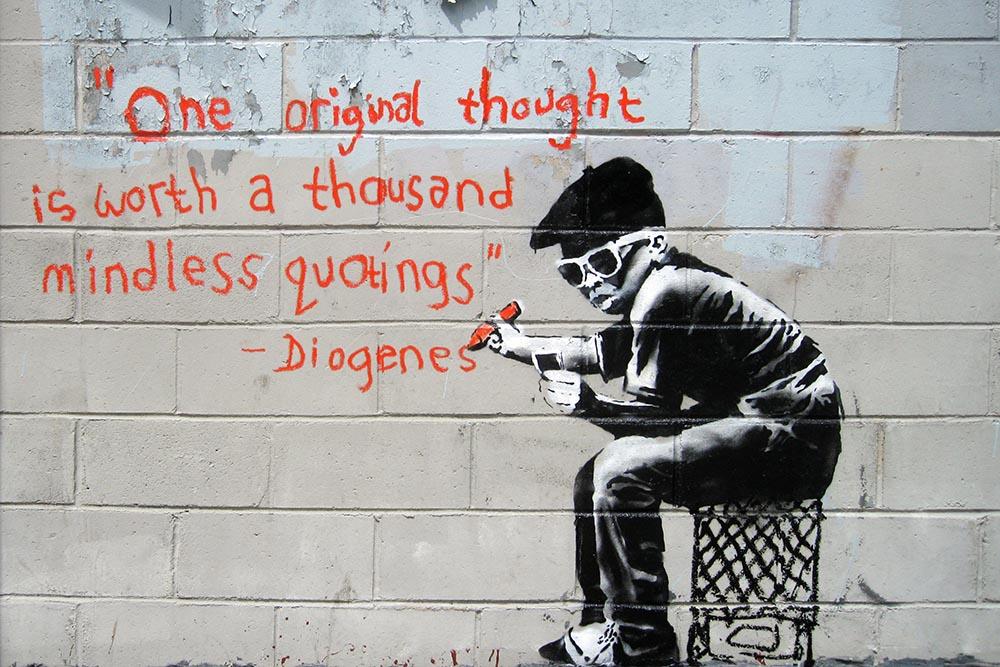
However it is that one would define the culture that we find life in today, what is undeniable is how much of it has been shaped by the ideas of the past. Here, my mind turns to the many great thinkers whose philosophical insights underpin the form that entire industries take today. Isaac Newton and the scientific revolution. Marie Curie and the field of radioactivity. Jeremy Bentham and utilitarianism as the guiding precept of legal order. And the list goes on and on. With these giants being agents of our collective evolution, they each laid in place the building blocks that have allowed us to see further than they were able to in their day, and ask deeper questions about the things they discovered. Having provided us with the knowledge and wisdom that we so often take for granted, it is their pioneering spirit that continues to inspire those who strive to awaken their own innate genius and move towards self-mastery.
This is perhaps no more true than for adherents of the perennial philosophy, which seeks to get at the heart of what it means to be fully human. With its immutable applicability that translates across generations, what is most amazing about reviewing its tenets is just how relevant its teachings are to modern life. While the context of life may have changed since its proponents wondered the earth many hundreds of years ago, the essence of what it ultimately means to live well hasn’t. For as long as I can remember, I have been an admirer of stoic thought and its urging for us to know ourselves in order to develop a virtuous character. How much better would the quality of our lives be if that was the path that we chose to emulate?
Another one of the books that I am currently working through is Marcus Aurelius’ Meditations. While the title of that seminal work represents a flavour of meditation that is different from what you or I may hold in our mind as we think about the concept, this spiritually introspective practice was being advocated for by this former Roman Emperor in 150AD! Yet, it is only in relatively recent times that a large number of business leaders, politicians, entertainers and professional athletes, among others, have taken to the practice for the wide-ranging benefits that it delivers.
How do we become the person that we were created to be? This really is the universal question. Asking it of myself for more than two decades now, I have learned so much that has informed my own growth, and influenced how I instruct others to go about the task of developing themselves. Were I the same person I was twenty years ago, I would have much less to offer to those who I have a stewardship responsibility over, my children and students. This to me would be untenable and a betrayal of the actualising quality of life that we have been called to embody as we progress along our individual and collective journeys.
When you think about it, who we are in this moment is the sum total of the ideas that we have brought into over the course of our lifetime. While once upon a time, I used to categorise ideas as being good or bad, now I tend to judge them through the lens of being useful or not useful. For me the question is ‘does this idea increase the quality of my life?’ Quality here is meant to comprise spiritual nurturance and enrichment, not hedonic pleasure seeking ends. If an idea meets this criteria, then I will run with it and integrate its lessons into my life. If it doesn’t then I will put it on the shelf. There is no harm in learning something new, even if it is unworkable for you. Some ideas will automatically resonate with us while others will not. It is just a part of getting on our authentic path and finding something of value that we can move forward with. This is the test. If there is a genuine resonance, they are likely to work. If not, then they will be hindered in their functionality. Wisdom in this sense is knowing how to ‘pick the roses and leave the thorns’ as a good friend of mine, Joe, is fond of saying.
Master motivator, Tony Robbins, once mused that “it doesn’t take a lot of ideas to change your life and it doesn’t take a complicated idea to change your life. All that it takes is something that you are willing to take in and use.” Really simple but practical advice here. Ideas are what we make of them. Powerful in themselves, the real magic is to be found in their application. Being where the rubber meets the road, this is how they make a difference and carve out the legacy of those who are courageous enough to conceive and implement them for the betterment of humanity.
